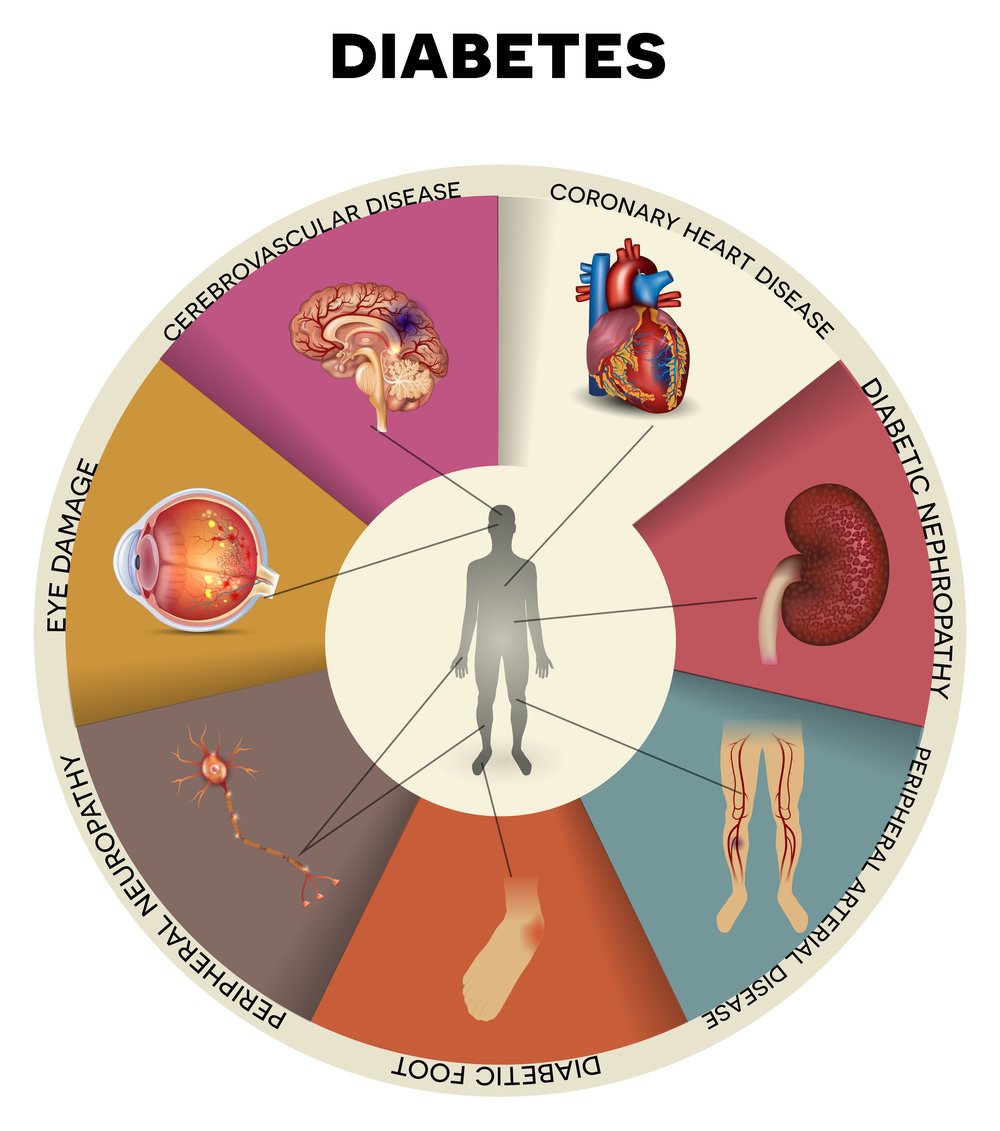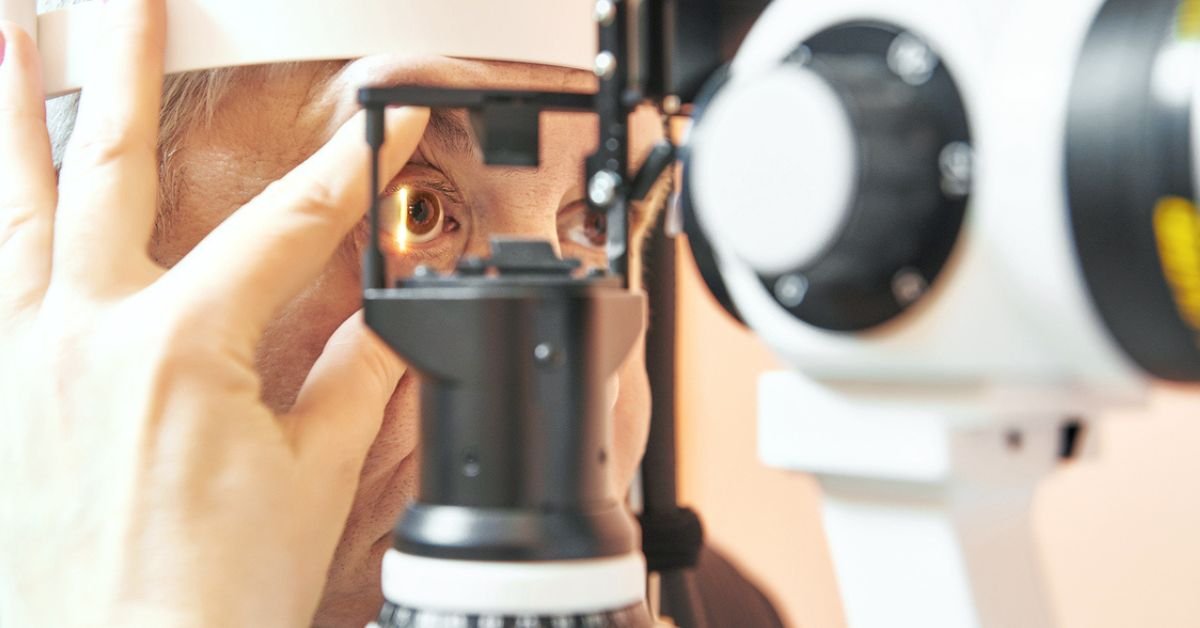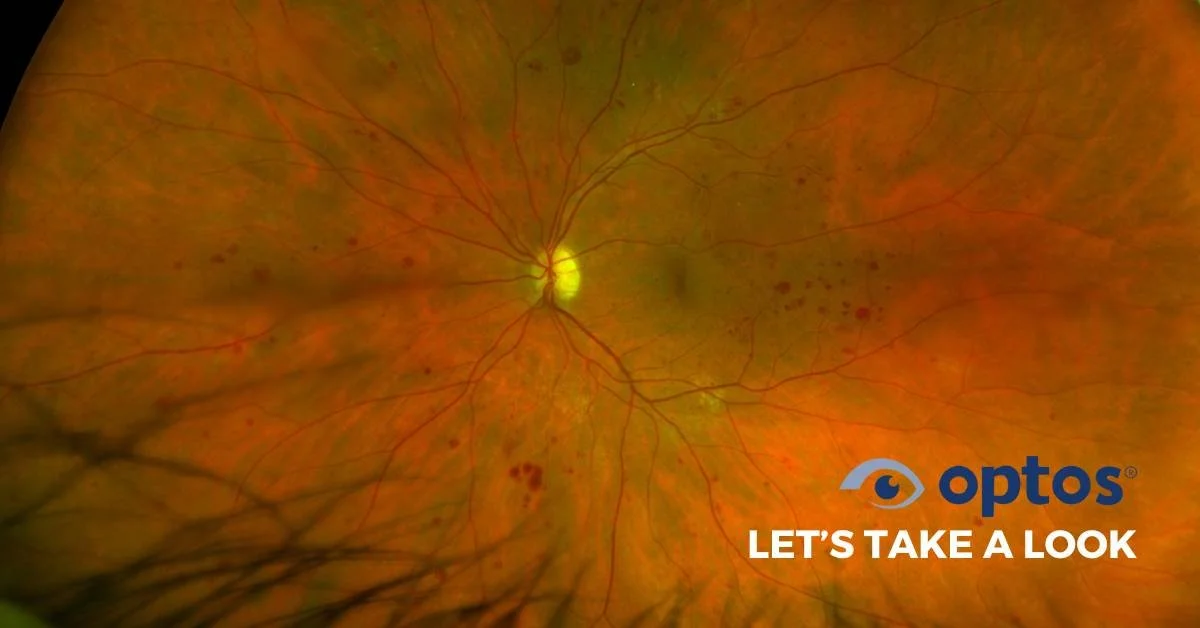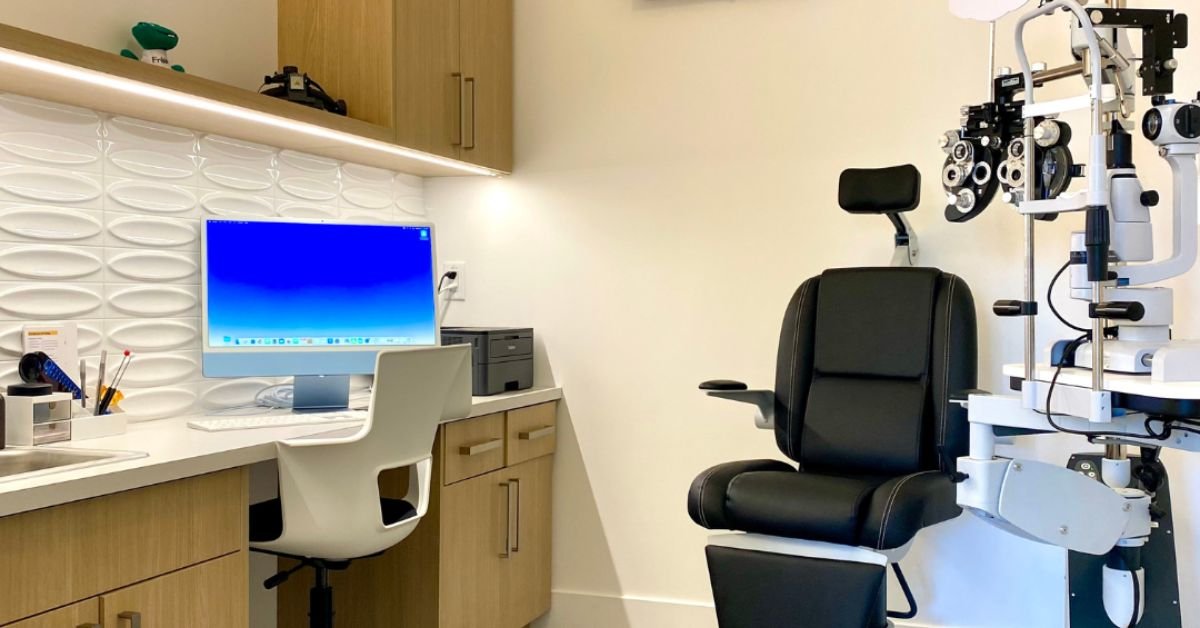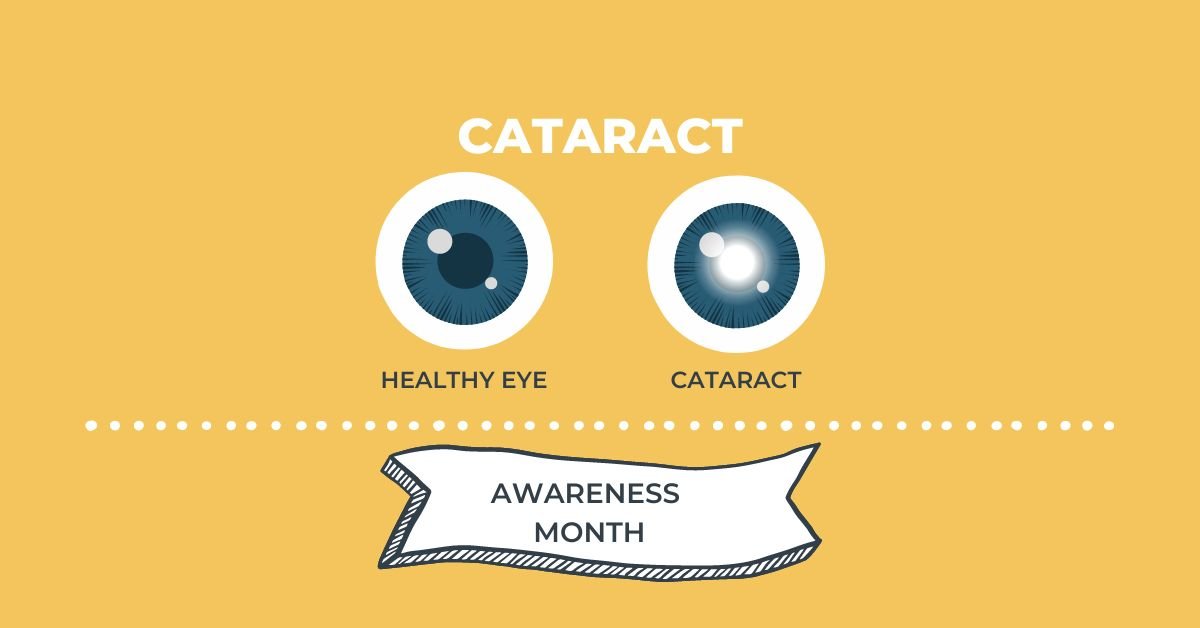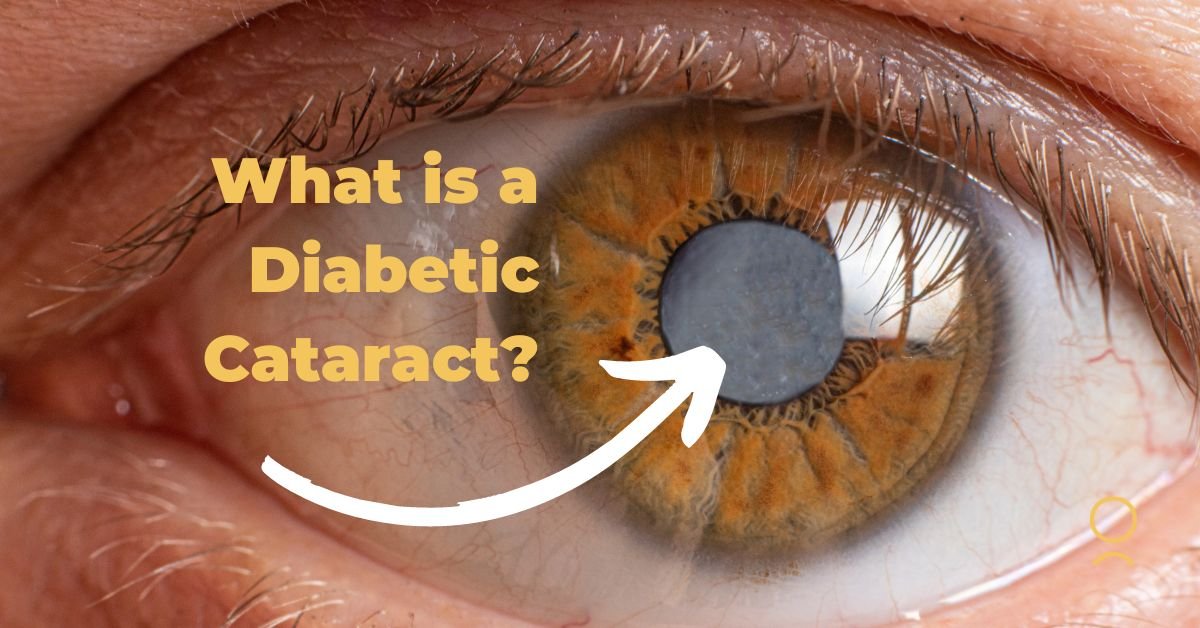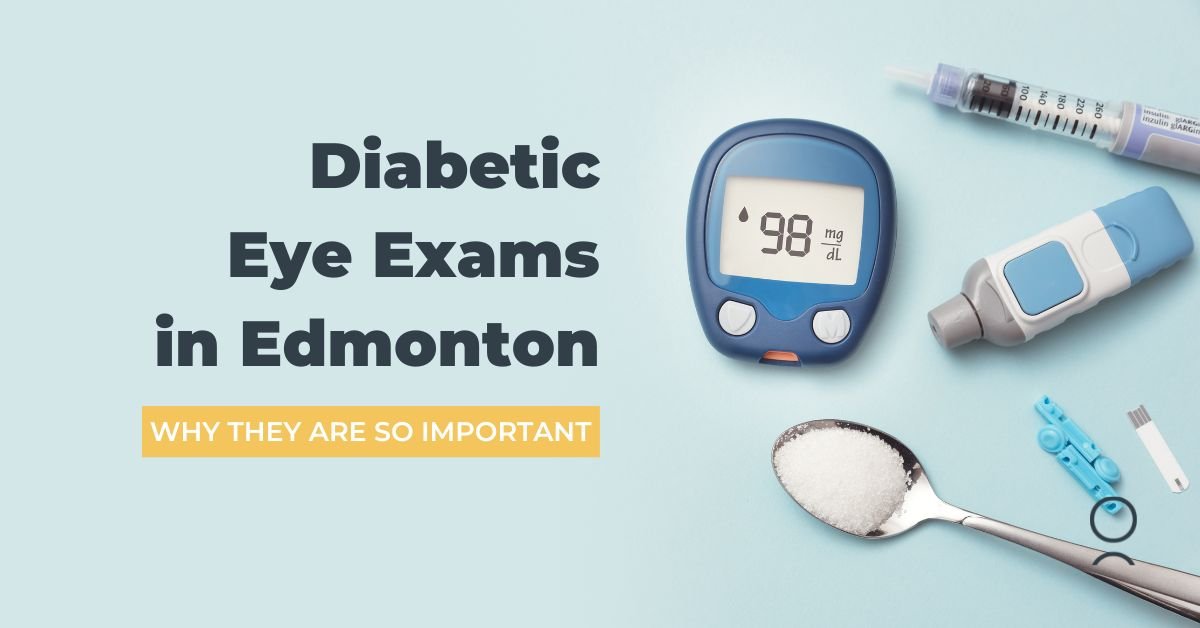
Diabetes Eye Exams
& Eye Care.
Focusing on Your Diabetic Eye Health & Vision Care
Cost: Diabetes Eye Exams Are Covered by Alberta Health Care, including Optomap Retinal Imaging, OCT 3D Imaging & Visual Field Testing. Frequency: Annually
Please Note: Diabetes Eye Exams Do Not Generate a Prescription for New Eyeglasses or Contact Lenses.
Eye Exams and Diabetes
Nearly 5.7 million Canadians currently have Diabetes (Type 1 & 2), and another 5 million have prediabetes. This means that almost 1 in 5 Canadians is at risk of developing Diabetic eye disease, and the trend is rising.
What is Diabetes?
Diabetes is a chronic health condition resulting from the body's inability to produce and/or properly use insulin. Insulin is a hormone that regulates how sugar is stored and used in the body. The body needs insulin to use sugar as an energy source.
There are several forms of diabetes: type 1, type 2 and gestational diabetes.
Diabetes Affects Everything.
Diabetes is a systemic condition which means it can also increase your chance of developing other health problems, such as:
Heart Disease
Kidney Disease
Erectile Dysfunction in Men
Nerve Damage
Amputation
Eye Disease & Blindness
Visual fluctuations 2nd to unstable blood sugar levels
Dry eye syndrome
What is Diabetic Eye Disease?
Diabetic eye disease is a group of eye problems affecting people with Diabetes (Type 1 & 2). These conditions include Diabetic Retinopathy, Diabetic Macular Edema, Diabetic Cataracts, and Glaucoma. Over time, Diabetes can cause irreversible damage to your eyes, leading to vision loss. Diabetic eye disease, however, is not inevitable. By taking care of your Diabetes, you can prevent diabetic eye disease or prevent it from worsening.
The Five best ways you can keep your eyes healthy if you have Diabetes are:
Manage your blood glucose or sugar levels.
Manage your blood pressure.
Manage your cholesterol.
If you smoke, quit.
Have a dilated eye exam every year.
Most people have minimal or no symptoms in the early stages of being diagnosed with diabetes. Still, it's important not to be complacent. Early diagnosis, management and treatment are critical to ensure your eyes and eyesight remain healthy. To learn more about how diabetes affects your eyes, check out our article on understanding how diabetes affects your vision.
Diabetes Eye Exams Are Needed Every Year
Even though diabetes screening and eye exams are readily available by optometrists and ophthalmologists, nearly 30-40% of Canadians fail to see their eye doctor annually. These numbers are higher for new Canadians and in lower-income neighbourhoods.
Early detection and treatment of diabetic eye disease is required to prevent or slow vision loss.
Diabetes eye testing involves a dilated eye exam, which involves temporarily dilating your pupils so that the doctor can evaluate the small blood vessels of the eye and retina in more detail. We will also take detailed ultra-widefield retinal images to help us find signs of peripheral retinal disease and monitor your eye health over time.
Are you At Risk of Developing Diabetes?
Take the CANRISK test on the Canadian Government website to know your risk.
Check Out Some of Our Articles on Diabetes Eye Health
FAQ’S | Diabetes Eye Exam
-
A diabetes eye exam involves a complete medical history emphasizing your current treatment plan (medications, lifestyle modification), blood sugar control and other risk factors. In addition, our optometrists will examine the outside and inside of your eyes in detail, which requires dilating eye drops, which temporarily enlarge your pupil and make it easier for us to see all the structures of your eyes. These tests allow us to rule out or find early signs of diabetic eye disease.
-
A diabetes eye exam focuses on your eye health and does not evaluate your vision, eyeglasses or contact lens prescriptions in detail. If you wish to update your glasses or contact lens prescription, you can also schedule a routine eye exam.
-
Absolutely. We will start with a routine comprehensive eye exam, then perform the dilated diabetes eye exam and any additional testing that may be required. When combined in this fashion, the eye exam will usually take about 1 hour but saves you a trip back to our office on a separate day.
-
Yes, most people can safely drive home after dilating their eyes. But, taking some precautions or bringing someone who can drive you home is essential. Dark sunglasses are strongly recommended as your eyes will not be able to adjust to the sunlight. In addition, we recommend that people drive straight home instead of performing other errands.
-
Yes. Every Albertan, regardless of age, is covered by Alberta Health Care for an annual diabetes eye health examination with an optometrist. You do not need to see an ophthalmologist or have a referral from your Primary Care Physician or Diabetes Specialist.
-
#1 - Your Alberta Health Care (AHC) card - this allows us to bill AHC for the dilated retinal exam
#2 - Government Issued Photo-ID - Required for all AHC visits.
#3 - The Name of Your Family Doctor or Diabetic Specialist - We like to send them a letter after the eye exam, letting them know our findings.
#4 - A list of your current medications
#5 - Your last few blood sugar readings and if they're stable
#6 - Your last HgA1C reading and if they're stable or rising
#7 - If you've ever had any previous eye surgeries
#8 - Your current eyeglasses so we can check your visual acuity.


